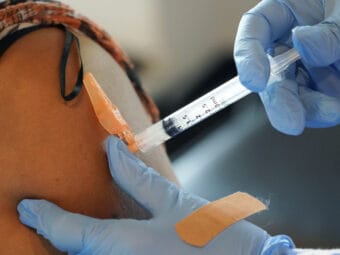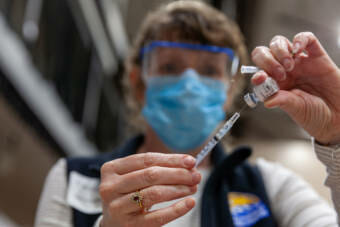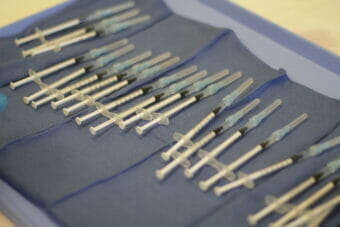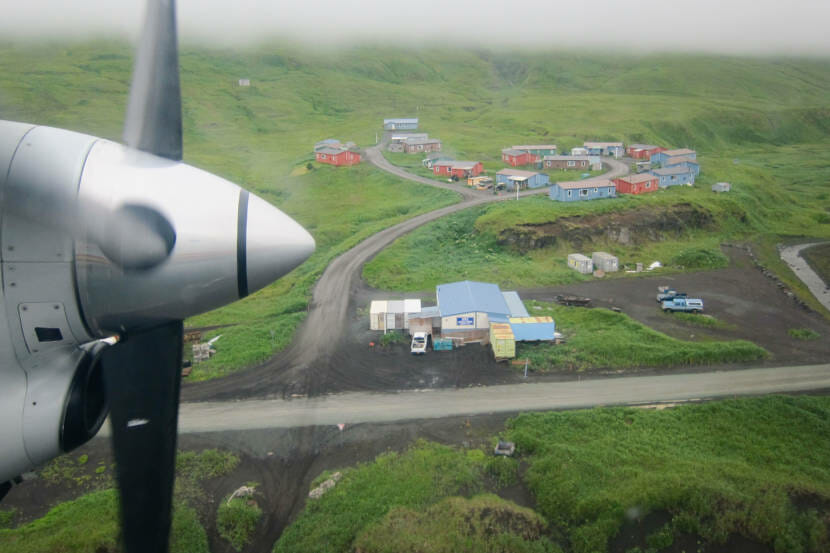
Unalaska’s neighboring communities of Atka and Nikolski — as well as St. George in the Pribilof Islands — are almost completely vaccinated against COVID-19 through the tribal vaccine rollout.
“We’ve got enough vaccines to get everybody completed,” said Lori Jackson, a nurse practitioner and medical director for the Aleutian Pribilof Islands Association, which operates the tribal community clinic in Unalaska.
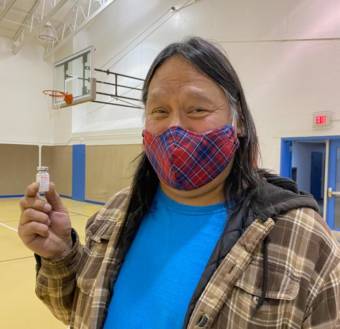
The Oonalaska Wellness Center is acting as a “vaccine hub” to get doses out to those communities in the Aleutians and Pribilofs that APIA serves. Jackson said that’s anywhere between 450 and 490 people across the four communities.
“I have honestly been a pest, in a lot of people’s words,” Jackson said. “I have advocated, advocated, advocated over and over for our population as a whole in Unalaska, and our surrounding villages.”
According to Jackson, Indian Health Services has allocated 1,100 doses of the Moderna vaccine to the region, to date. Seven hundred have arrived, and 400 are still on the way.
“To be clear, this is first and second doses,” Jackson said. “So really 1,100 sounds like a lot, but that is only 550 [doses] to cover our tribal members in our region.”
Once APIA completes vaccinations for tribal members who want it, the Qawalangin Tribe will determine who’s eligible next for the vaccine, Jackson said.
“Our Alaska Native and American Indian population has a much, much higher risk of contracting COVID and a much worse outcome, should they have it,” she said.
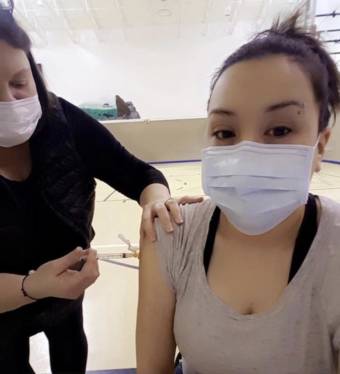
(courtesy of Hertha Kashevarof)
She says it’s her responsibility to provide health care to the Native population, but it’s also important to protect others in the community.
“I continue to advocate for our entire population of Unalaska, not only the Native population,” Jackson said. “We have an entire fishing industry that we need to get [vaccinated] because we’re surrounded all the time by people, by our neighbors, our friends, our family, regardless if they’re beneficiaries to the Indian Health Services or not.”
Vaccine eligibility has recently been opened up to non-Natives who live with tribal members, according to Alysha Richardson, emergency response and community safety coordinator for the Qawalangin Tribe.
For the next distribution, she said the tribe is discussing prioritizing community service organizations with congregate living, as well as workers at organizations and businesses that interface with the public, “such as certain city departments, grocery stores, the airport, KUCB, the Museum of the Aleutians, etc.”
APIA has been allocated just 100 vaccine doses so far for the month of February, according to Jackson, but she said she will continue advocating for more.
“That’s what we were allotted in January too,” she said. “So I’m going to keep pestering people, and hopefully the door will open and more will come on in.”
The tribe is conducting outreach to tribal households to make sure everyone that currently qualifies is made aware and to prepare for the next prioritization, Richardson said.

